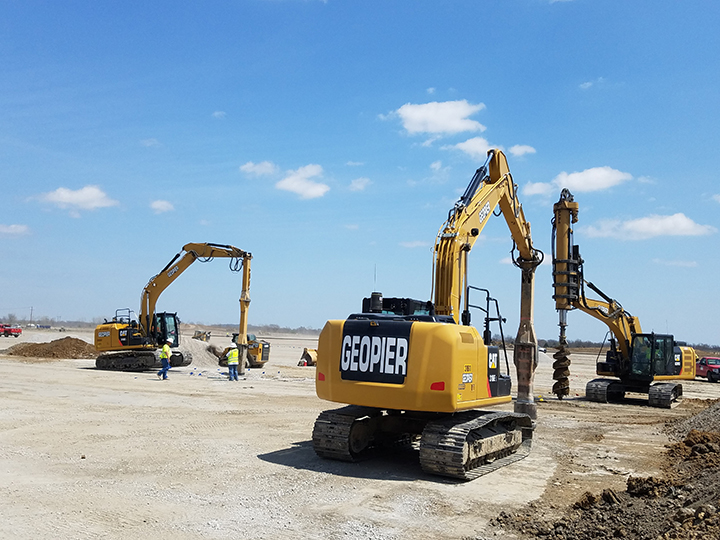Project Spotlight: 8/29/18 Geopier® ground improvement transforms soft site in Tulsa, OK

Ground Improvement Engineering (GIE) and Geopier Foundation Company designed the Geopier support for a 1.8 million square foot tissue paper manufacturing facility in greater Tulsa, Oklahoma.
We talked to Vaughn Rupnow, P.E. about the latest Geopier® ground improvement project completed in greater Tulsa, Oklahoma.
This site has an interesting history. Back in the late 1970s, a local energy provider started constructing a nuclear power plant there. However, public outcry derailed the construction and the plant concept had to be abandoned. But not until some infrastructure was in place including the reactor pit, rail sidings and underground utility lines. The energy provider marketed the property for years until a tissue paper manufacturer came to the table.
A geotechnical engineer was brought on board to provide building support recommendations. Their exploration found fill up to 20 feet deep and compressible native soils as deep as 40 feet. These conditions were not feasible for a conventional, shallow footing foundation system. The engineer gave a variety of foundation support alternatives such as over-excavation, end-bearing drilled shafts, and Rammed Aggregate Pier®.
The design team weighed the costs and schedule of each alternative; they concluded that Geopier would meet the settlement criteria at an economical price; furthermore the piers could be installed rapidly.
The project team did resort to pile foundations in a limited, very settlement-sensitive building portion but most footings would bear on improved soil.

The project broke ground during the first week of February and our Geopier installer, Peterson Contractors, Inc. (PCI) began building Rammed Aggregate Pier elements in late March. GIE observed the installation of the modulus test elements and reviewed the PCI quality control records.
PCI is using both the Geopier GP3® and X1® technologies, with X1 for the deeper fill and soft native soil areas. PCI completed the field work by the end of June; the overall project completion is scheduled for mid-2020.
